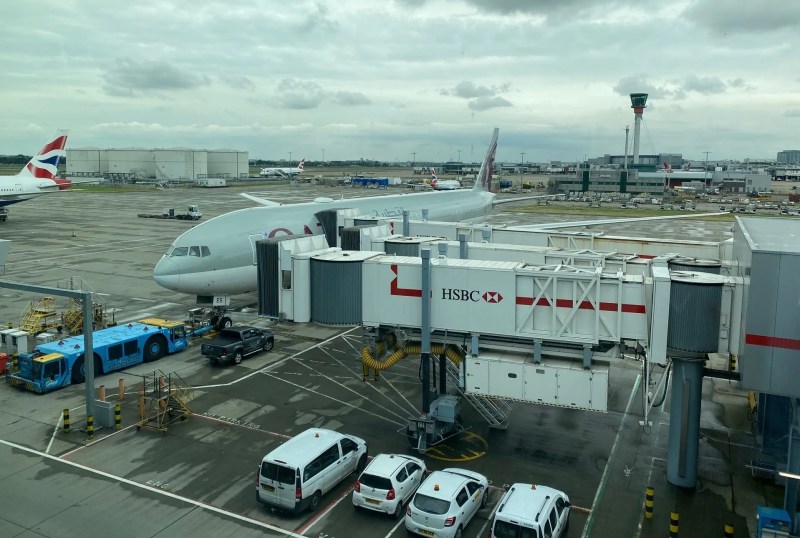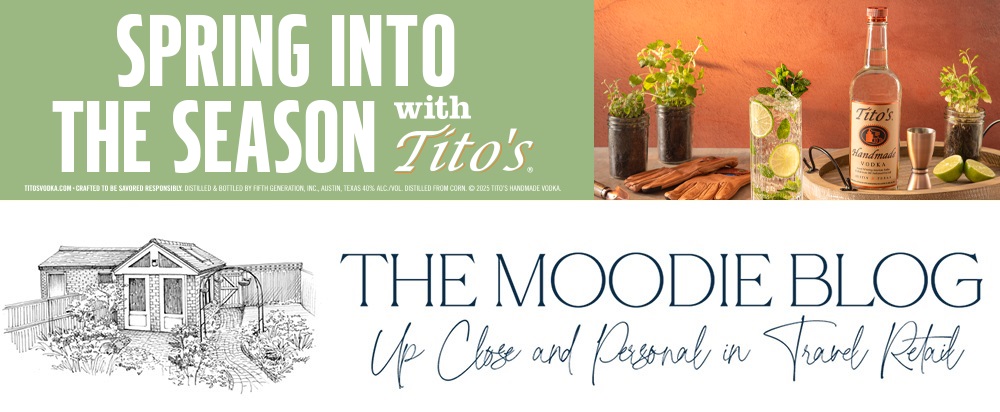Latest posts by Martin Moodie (see all)

‘Inconclusive.’ Not as bad as ‘positive’ but not nearly as good as ‘negative’ and thoroughly disconcerting, especially less than 18 hours before an international flight.
I’m talking COVID-19 RT-PCR language here and ‘inconclusive’ was indeed the ‘result’ that my wife Yu Lim received on Friday night from her test at Heathrow Airport on Thursday morning – a negative reading being a prerequisite to us flying out of the UK Saturday afternoon, onto Doha and then to South Korea.

What to do? A quick call to our trusty travel agent Phil Burdekin at FlightCentre in Wimbledon (I reckon his profession has had it just about as rough as anyone during this wretched past 18 months) and a possible solution was at hand. An organisation called The Regenerative Clinic in central London do 3-hour rush result PCR tests, he told me.
“When is your flight?”
“15.05 Saturday,” I replied.
“They’re open from 8am and you can book online.”
You could indeed. Alas, the first available appointment was not until 10.18 Saturday morning. With a three-hour wait and the need to print out the result – a positive negative as it were – things were going to be tight at the airport the next day. Just like old times then.
To cut a long and stressful story short, and as you can see from the images on this Blog, we made the plane. Just. We boarded at 14.53 and although departure was delayed a little, let’s just say it was an uncomfortably close shave.
It also meant I was unable to spend some time inside the Heathrow stores as planned but I was glad to see on my rush to the gate that most were open (as Heathrow Retail & Property Director Fraser Brown had told me during a welcome catch up on Thursday) and there was a much greater sense of normality than in my last visit out almost a year ago when there was an almost deathly stillness to the place.
Fraser and his commercial team and in fact the whole Heathrow management and staff have done a magnificent job in working their way through this crisis and are now at a critical point of revival, which is great to see.





That close shave I mentioned was made far more comfortable by the professionalism and assistance of the Qatar Airways team at Heathrow Airport Terminal 5, however. Checking in is not as simple a process at it was in those halcyon pre-COVID days. PCR test results need to be checked along with all other details. Do NOT – as we had been forced to – turn up at the last minute. Thanks to the superbly professional Sanjeewa (from Sri Lanka, pictured below) at check-in, and Station Manager Robert, we made it.

As I write, we’re about an hour out of Hamad International Airport, where I’m looking forward hugely to catching up with Qatar Duty Free Vice President Operations Thabet Musleh on Sunday before flying onto Incheon and then Busan in Korea.
The crew onboard has been fantastic and, helped by a glass or two of Lallier Grande Réserve (65% Pinot Noir, 35% Chardonnay and in its mix of toastiness, creaminess and freshness one of the best Champagnes on the planet); a 2016 Jean-Marc Brocard Chablis Premier Cru and a glass of Château Phelan Ségur with my main, the stresses have eased and, in the right sense, I’m feeling conclusively positive – perhaps I should say upbeat instead – rather than inconclusively negative.











************************************

‘Please slow down.’ I wonder if the sign to motorists in the long, winding drive to my cottage in Ystradgynlais earlier this month carried a wider message for me.
It’s been a long, long haul of unbroken work days since the outbreak of the pandemic and I enjoyed the rare chance to gulp in the fresh South Wales air, walk for mile on end through this green and unspoiled countryside, and at last get to know my granddaughter, Carys (just turned one), born in the heart of the crisis one year ago.

In truth, I didn’t have too much option but to slow down in the farmette cottage where I stayed. What seemed like a major crisis when I discovered there was no phone signal therefore no internet when I arrived soon dissipated into a minor inconvenience, rectified by a daily visit to my daughter Sinead’s house in Pontardawe where much of the crucial back-room administration of The Moodie Davitt Report takes place.


Downtime, besides offering welcome respite from the pressures and providing crucial family moments, also allows you to reflect on the uptime as it were. Are we as an organisation doing as much as we can to retain relevance, respect, momentum? What changes do we need to adapt to what has now become a long-term change in the industry landscape? What can we do better? Differently?
Every business leader must ask those questions. Whether you’re a B2B media title, a travel retailer, a F&B operator or a trade association, having flourished in the past does not mean you will – or deserve to – in the future amid these complex and hugely demanding times. It’s tough and in some cases – Sydney’s new COVID outbreak springs to mind – going to get tougher.
The organisations that have flourished most during the recent troubled months and/or those that are best placed to benefit from any recovery are those that have gone through a kind of corporate rebirth. When I look at those that are most strongly placed in various sectors, I see common traits.
First, they moved early in responding to the crisis. Let’s call this the pragmatic stage, getting costs in order and rebasing the business if necessary in terms of output, outlets, routes etc and ‘controlling the controllables’. Second, they displayed an unswerving commitment to excellence (of product and of service) amid crisis.
Third, they put a focus on flexibility – don’t keep doing things the way you did them before in the hope that everything will somehow come right. Fourth, an innovation (and therefore investment) agenda, one based on current and (likely) future realities, not one shaped in the nostalgia of simply pining for a return to 2019.
Qatar Duty Free and its parent company Qatar Airways have adopted all those principles – particularly numbers two and four – during the crisis. The retailer is generating some very healthy numbers indeed and its innovation agenda is jam-packed. More of that in my next Blog, written from somewhere in the sky onboard my next Qatar Airways Interim Bureau en route to the Republic of Korea. First another PCR test here at Hamad International Airport, then an eagerly awaited airport and store tour await.


You must be logged in to post a comment.